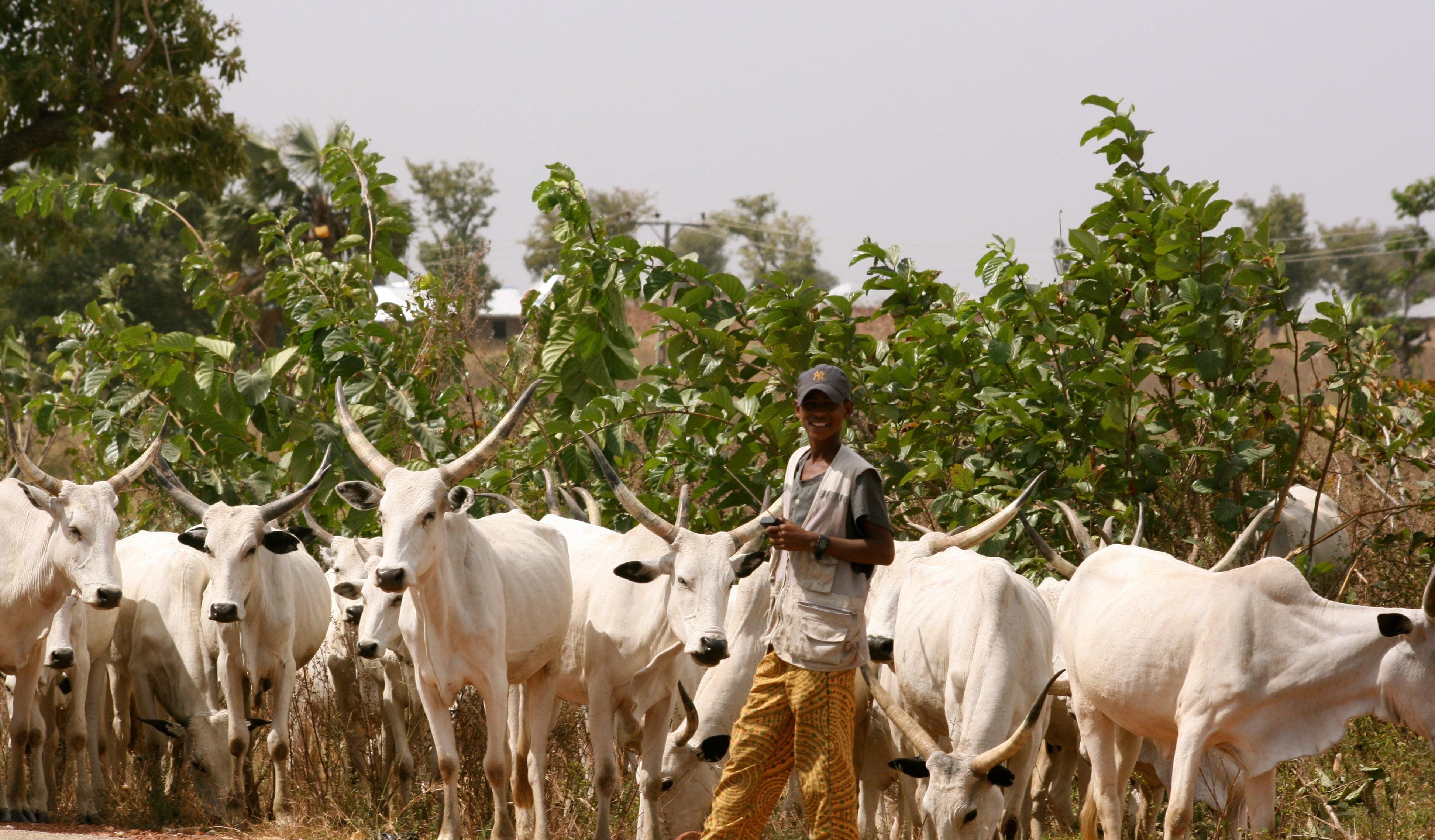The Central Bank of Nigeria (CBN) will support and integrate small holders, subsistent and nomadic herdsmen through its Anchor Borrowers Programme (ABP) to boost livestock production.
The CBN Governor, Mr Godwin Emefiele disclosed this at the briefing of some state Governors on the feat recorded in agriculture sector in Abuja on Thursday.
Emefiele decried the Nigeria’s spending of about 1.5 billion dollar yearly on dairy production importation such as milk, yogurt, cheese and other milk derivatives.
He added that over 95 per cent of milk products consumed in the country was imported, adding that the apex bank was determined to change this narrative.
“We are also aware of the fact that 85 per cent of Nigeria’s cattle, estimated at over 20 million, are owned and managed by small holder, subsistent and nomadic herdsmen who require to be integrated in the scheme of things and be supported by the bank under the ABP.
“The dairy industry had huge potentials such as the creation of millions of jobs and forex savings. In addition, the sector has an undeveloped meat processing infrastructure, declining tannery operations.
“Others are inadequate large-scale private investments in cold storage and transportation, and insecurity arising mostly from pastoralists and farmers clashes, rustling, and other socio-economic challenges.
Emefiele noted that the bank’s flagship partnership on livestock development initiative had commenced in Niger State, adding out of its 26 Grazing Reserves, the state chosed Bobi Grazing Reserve for the project.
Bobi reserve is situated in Mariga LGA with land area of 31,000 hectares with about 700 families with 300,000 heads of cattle resident on it.
The governor disclosed that as at today, four companies had expressed interest to invest in the Bobi Grazing Reserve in Niger State.
According to him, FrieslandCampina WAMCO and Neon Agro agreed to take 10,000 hectares of land each, while Chi Limited and Irish Dairy are to develop 4,000 hectares each while the State Government retained the remaining 3,000 hectares for its development programmes.
“As at Tuesday 18th September, 2019 FrieslandCampina WAMCO has cleared a total land area of 695 hectares with 190 hectares already planted with pasture.
“The company also completed a hydroponic centre and solar powered borehole while its Milk Collection Centre is awaiting the installation of equipment and Chi ltd has also signed contracts for the clearing and planting of pasture on its allocated 4,000 hectares.
“Niger State Government on its part has cleared and fenced 63 hectares in two sites and planting of pasture is in progress.
“The Police post, administrative area, veterinary clinic, primary school were refurbished while a Primary Health Care Clinic is under construction,” he explained.
Emefiele said in Kaduna State, Arla Group had existing projects in Damau, Amana, NAPRI Shika and Kagarko and under the bank’s livestock initiative, the company had committed to invest N12 billion to develop 6,000 hectares of land in Damau Grazing Reserve.
According to him, Arla is ccurrently refurbishing a milk processing plant and will soon commence milk off-take from 600 farmers in Kagarko.
He said Promasidor Group had been granted consent to develop the 500 hectares at Ikun Dairy Farm Project in Ekiti State while the company had commenced work on the site with deployment of 20 tractors for land preparations as the planting of pasture would commence thereafter.
“Others are Integrated Dairies Limited, an indigenous dairy company based in Jos, Plateau State that has engaged the Plateau State Government and key stakeholders on the development of Wase Grazing Reserve.
“Nestle plc has indicated interest in developing its dairy project in Abaji, FCT. We are in contact with relevant government departments to fast track land acquisition and issuance of title documents.
“For these investments to bear fruits, the support of the state governments is needed through land, and other infrastructural amenities,” he said.





2 Comments